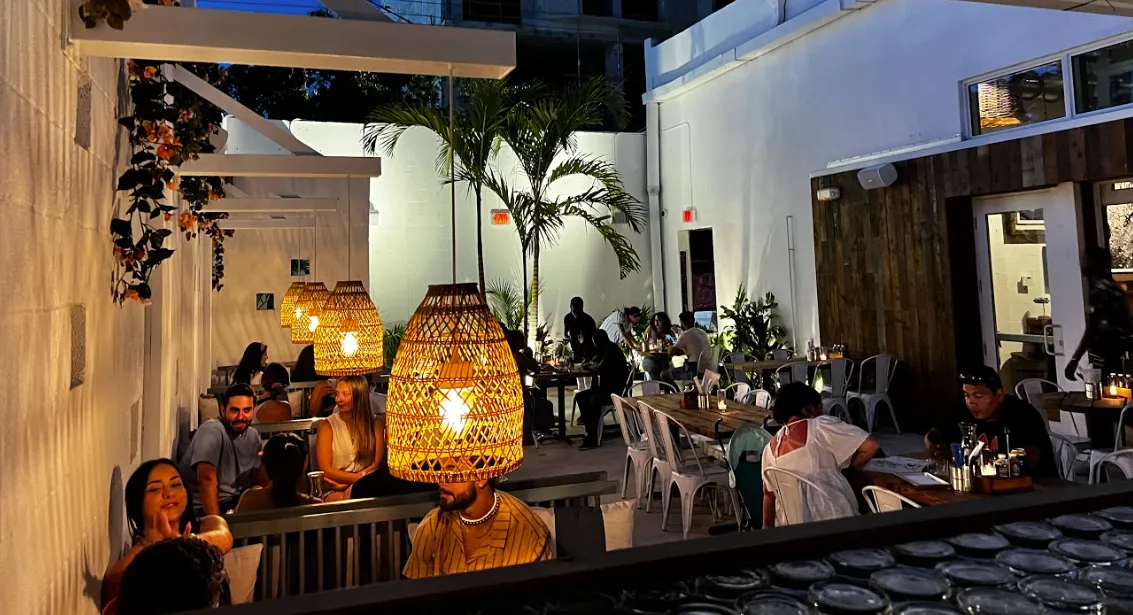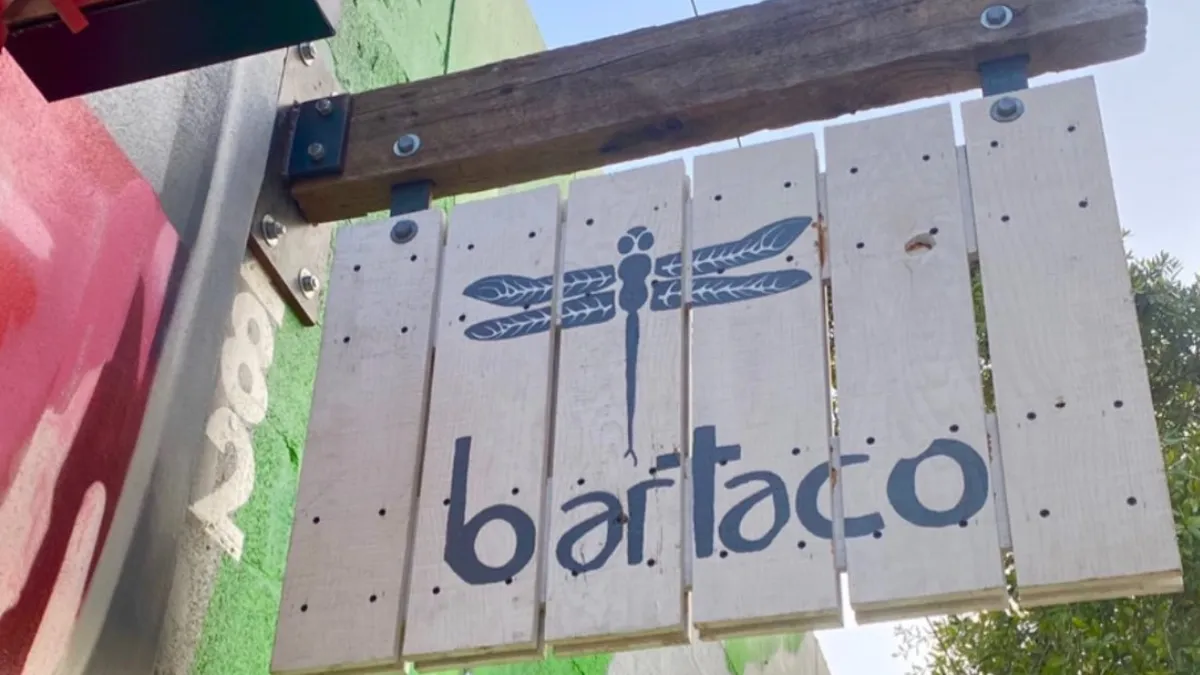When the COVID-19 pandemic shut dining rooms down, Bartaco’s wait staff all went home, but the restaurant continued to run a takeout operation, CEO Scott Lawton said. As Bartaco slowly reopened its dining rooms, it didn’t bring a traditional wait staff back. Instead, front-of-house employees who wanted to return were put in newly created management positions called “service leaders.”
Unlike traditional wait staff, these workers don’ t wait on individual tables, but instead manage a zone of customers who are encouraged to order their food via QR codes digitally. About 90% of customers order their food via QR codes, which were added when dining rooms reopened, and another 10% write their orders on paper menu cards that service leaders collect. Diners can pay and check out digitally, as well. Bussers and food runners still service Bartaco’s tables.
The 25-unit chain began pooling tips so that all hourly employees on shift, including back-of-house workers, would receive a share, Lawton said. This move allowed Bartaco to offer a living wage for everybody at the restaurant, he said.
“We want to take that tip money and we spread it out to the whole restaurant, including the kitchen,” Lawton said. “We pay minimum wage to … every hourly employee and they get a cut of the tips so the average pay in our company systemwide is $23 an hour.”

Starting pay for service leaders is $55,000 and includes various benefits, such as a 401K plan plus employer match, healthcare, life insurance and access to a leadership development platform that offers personal coaching and group coaching sessions. Bartaco also regularly teaches employees restaurant 101 classes to help service leaders develop into assistant managers and general managers. These more senior positions are salaried and full-time, so they aren’t entitled to tips, Lawton said.
Lawton said Bartaco’s hourly wages range from $20 to $35. At some restaurants that produce good tips, dishwashers working 40 hours a week at a Bartaco could earn about $50,000 a year, he said. Comparatively, the U.S. Bureau of Labor Statistics clocks hourly earnings for restaurant employees at $17.25 as of November.
“[Tip pooling] helped us with the staffing shortages because we’re paying people well and we’re holding onto them,” Lawton said.

While Bartaco’s staff system has shifted, customers still receive a quality hospitality experience, Lawton said. A hostess greets customers at the door and asks customers if they’re comfortable with digital ordering or if they need a paper menu.
Pooled tips also incentivizes staff to serve customers quickly to yield high sales. If a staff member is slow, another staff member often motivates that person to pick up the pace, he said.
“In the 30 years that I’ve been in the restaurant industry, this is the only time that I’ve had full alignment with all of my staff,” Lawton said. “We’re all working toward the same thing. And everybody makes money if we all make money. … It’s just a fair and equitable model.”















